#joandfriedrich
Text
Louisa May Alcott Wanted To Get Married

My research really started from the desire for wanting to understand the book better. Then I decided that I wanted to focus on Laurie, Friedrich and Amy because let's face it, they are the most misunderstood characters. As my research has been evolving, I think Jo is a very misunderstood character as well.
One thing that came very loud and clear when I dived deeper into the research was that Louisa intentend, from the very beginning for Jo and Friedrich to end up together, and Amy and Laurie to end up together.
youtube
Margaret Fuller was an American journalist, editor, and woman's rights activist. Fuller's Writings on Love and Marriage had a huge impact on Louisa. Her book "Dial" expresses her almost gender-neutral understanding between men and women. Fuller´s writings are considered the first American feminist writings at a time when feminism as a concept and as a social movement did not exist yet.
Louisa knew Margaret and greatly admired her and was deeply affected by her radical ideas. "
Male and female represent the two sides of the great radical dualism, but in fact, they are partially passing into one another. Fluid hardens to solid, and solid rushes to fluid. There is no fully masculine man nor fully feminine woman"
Following the transcendental idea of duality Fuller, sees a man, including both sexes, those being the two sides of the same. Fuller underlines the fact that we cannot separate the well-being of either, but what is good for one sex is good for both. Equality between the sexes is beneficial for everyone.
These ideas were revolutionary. Jo is often portrayed as a feminist icon, and this has been only highlighted by the movies, but in the book, Jo does fall into misogynist behaviour more than once, especially in her younger years. There's a lot of talk about toxic masculinity. In her friendship with Laurie, both Jo and Laurie adapted behaviour patterns that we might nowadays refer to as sexist.
They fed each other with misogynist ideas. They made one of the feminine girls, Laurie was flirting with in college. Jo mocked both Amy and Meg, for wanting to fit into the female circles. When Jo lost her trip to Europe, it happened because she made fun of the feminine labour. When Laurie proposed to Jo, he took a position that was demanding. In comparison to Jo, who is very blunt, Laurie was very emotional and became easily offended. For Jo, showing emotions was a weakness. This is something that Laurie even called her out in the book, In the 2017 series, after Marmee goes to Washington, Jo tells her sisters not to cry. In her relationship with Friedrich, for the first time, Jo allowed herself to be completely vulnerable with another person.
#littlewomen#littlewomenpodcast#louisamayalcott#jomarch#friedrichbhaer#laurielawrence#amymarch#joandfriedrich#Youtube
18 notes
·
View notes
Text
Love and Sex In Little Women
youtube
It might come as a surprise to some people but there are actually quite a few sex scenes in Louisa May Alcott's Little Women. In this episode, we shall dive into 19th-century courtship and how Alcott writes about courtship etiquette. Laurie is based on Alcott's ex and Friedrich to a man she wanted to marry. Little Women, after all, is wish fulfillment.
#littlewomen#little women#littlewomenpodcast#jomarch#friedrichbhaer#joandfriedrich#amymarch#laurielawrence#amyandlaurie#megmarch#bethmarch#louisamayalcott#book#Youtube
13 notes
·
View notes
Text
Some “Little Women” thoughts – In defense of Meg’s marriage
@littlewomenpodcast, @thatscarletflycatcher, @joandfriedrich
Whether Little Women is a feminist book or an anti-feminist book will probably be debated forever.
Most of the debate seems to center around the character of Jo: whether she’s depressingly “tamed” in the end or matures in a healthy way, whether her marriage is anti-feminist or not, and whether or not it’s “anti-feminist” that in the end she’s a schoolmistress instead of a famous author. (Though of course she’ll eventually be a famous author in Jo’s Boys.) But similar debate surrounds the other March sisters too, for various reasons.
Not even Meg, the sister whom readers most often seem to overlook, is spared from these debates. Many feminist critics, such as (but not limited to) Samantha Ellis in her book How to Be a Heroine, have criticized the chapters depicting Meg and John Brooke’s married life in Part II. They label those chapters “depressing,” and they feel as if Meg and John are constantly at odds with each other and miserable. They argue that each of their marital conflicts ends with Meg learning to be a more submissive wife who placates and effaces herself for her husband. And they despise John, labeling him “selfish” and “disrespectful.”
Sometimes I wonder if I read the same book that they did.
It seems obvious to me that Meg and John’s marriage is a happy and healthy one: Alcott is just honest about the fact that even the happiest marriage includes conflict and requires work. Some of these critics seem to think fictional marriages only exist in two forms, “perfect” and “toxic,” with no in-betweens. Nor does John deserve half the negative commentary he gets, nor does Meg’s personal growth within her marriage consist of learning to be a submissive or self-effacing wife. On the contrary, much of her growth consists of her learning that she doesn’t need to be a “perfect” housewife and mother who gives and demands too much of herself, and their marriage becomes more of an equal partnership by the end, not less of one.
Let’s look in depth all three of Meg and John’s marital conflicts.
First there’s the jelly incident.
Here we see the first of a recurring theme: Meg is determined to be the perfect housewife and is "over-anxious to please.” She wants to do everything right and do it all by herself, because she’s afraid that otherwise, she'll be a failure. In terms of her personality type, I agree with @funkymbtifiction that Meg is an ESFJ. In the book, if not in all adaptations, Meg and Amy are both ESFJs: Amy is more of the sparkling “Glinda in Wicked” variety, while Meg, apart from her streak of vanity, is more of the down-to-earth, motherly, “Mrs. Potts in Beauty and the Beast” variety. But Meg in particular shows what @alittlebitofpersonality calls the ESFJ Type Angst. Her eagerness to manage her marriage and motherhood in the most pleasant, correct way (her strong Fe and Si) and her fear of possible failure (her weak Ne and Ti) give her, in A Little Bit of Personality’s words, a “frantic desire to do everything and get it done right now,” so she drives herself too hard.
She shouldn’t have promised John that he could bring home a dinner guest at any time; that’s unrealistic. Nor should she have tried to make jelly for the first time in her life using only the memory of watching Hannah make it; she should have invited Hannah over to help her. Nor should she have become so absorbed in making and re-making the jelly that she didn’t cook dinner; nor should she have let herself be so distraught about the failed jelly, or lost her temper with John and then run to her room, leaving him to improvise a bread-and-cheese dinner and entertain Mr. Scott alone.
John is also at fault and acknowledges it. He shouldn’t have forgotten that Meg was making jelly that day and brought home a guest without warning. He shouldn’t have laughed at Meg’s anguish over the failed jelly, nor should he have joked that he and Mr. Scott “won’t ask for jelly” with dinner. But let’s be fair to John. His laughter is probably just as much out of relief as out of amusement, because when he first comes home and finds Meg sobbing, he worries that something terrible has happened. Then, when he realizes no food has been cooked, he’s understandably annoyed because he’s come home from work tired and hungry, with a guest too, and Meg hasn’t done what she promised she would. But he doesn’t lose his temper; he stays calm and amiable and accepts a cold-cut meal; he just gives his annoyance a tiny vent with his joking barb about the jelly. Then Meg overreacts in response.
In the hours afterwards, he and Meg are still polite to each other, just a bit distant, each sorry but waiting for the other to apologize first. Then, when Meg finally breaks the ice, they both apologize (not just Meg – in fact only John verbally apologizes, Meg just does it with a kiss), everything is fine again, and from then on they both laugh about the incident.
Maybe by modern standards, it is problematic that Marmee has urged Meg to be careful not to make John angry and to always apologize first when they’re both at fault. But it’s not because John has “a volcanic temper,” as Samantha Ellis inexplicably claimed– he so clearly doesn’t! Nor is Marmee’s message “Men are less forgiving than women so we need to placate them.” She’s not talking about “men,” but about John the individual, and she’s not urging Meg to placate him either. All she means is that John’s anger doesn’t flare up and die quickly like the March women’s, but simmers much longer because he represses it.
Then there’s the silk incident.
Say what you will about vanity-shaming and other gendered implications (which of course are valid), but Meg didn’t need an expensive silk dress, and she shouldn’t have ordered it without telling John. It’s not that a wife should ask her husband’s permission to spend money; it’s that no one, regardless of gender, should do anything behind their spouse’s back that they’re ashamed to admit. And again, John doesn’t get angry. He accepts the expense without complaining. He’s just hurt; he works so hard to provide for Meg, and the fact that what he provides isn’t good enough for her, that she says “I’m tired of being poor,” makes him feel inadequate. Yet he tries not to show his hurt and is willing to let Meg have the dress. He cancels his own order for a new overcoat so they can afford it; he’s willing to sacrifice something he needs for something Meg wants but doesn’t need. When Meg sells the silk and buys the overcoat for John instead, she’s only repaying his selflessness in kind.
Finally, we reach the chapter “On the Shelf.”
I’ve read several feminist articles that criticize this chapter and especially John’s behavior in it. But I don’t agree with any of them. John isn’t being selfish the way Meg briefly thinks he is; he’s not jealous of her attention to the twins. By all appearances, Meg genuinely neglects him and overwhelms herself too, because she devotes every waking moment to her two toddlers and thinks no one can properly take care of them but herself. Again she’s trying to be superhuman because she’s afraid of failure. She doesn’t let John be a parent to his own children, or take any time to relax either, and she spoils the twins and makes things harder for herself by giving in to their tantrums. I understand why some feminists are rankled when John starts spending his evenings elsewhere, Meg feels ignored, and Marmee tells her it’s her own fault for forgetting ‘her duty to her husband.” But even if that wording isn’t ideal by modern standards, it's arguably true. To blame John for “not bothering” to help take care of the twins and “forcing” Meg to do it all alone, as some of these critics do, is just the opposite of what the chapter means to convey.
And again, John doesn’t get angry or complain. Nor, unlike what some of these critics seem to think, does he cheat on Meg, either physically or emotionally. He just goes to visit the Scotts rather than feel lonely and useless at home (where Samantha Ellis got the idea that he goes to “what sounds like a dodgy establishment” is beyond me; it’s a friend’s house), and just because Meg worries that his eye is roving to pretty Mrs. Scott doesn’t mean it is.
Arguably, this chapter has a very feminist message about egalitarian marriage and co-parenting. Instead of doing all the work alone and sacrificing her own wellbeing, Meg learns to share her parenting duties with John, and to let Hannah babysit often so they can have much-needed time to themselves too. She also starts to converse with John about politics, so he doesn’t constantly feel the need to seek out a male friend to discuss them, and he returns the favor by conversing with her about domestic subjects too. Traditional gender divides are relaxed. By the end of the chapter, their marriage is more balanced and equal than ever.
I’ve also read complaints about John’s co-parenting. The fact that Meg is portrayed as too soft-hearted, spoiling rowdy Demi and needing John to discipline him. The fact that John and therefore Alcott advocates the potentially traumatic “cry it out” method of sleep training. The fact that John insists on handling Demi’s tantrum in his own way despite Meg’s objections and Meg reluctantly gives in, with references to John’s “masterful tone” and Meg’s “docility.” The possible sexist implication that John knows how to parent better than Meg does.
But I don’t think Alcott meant to imply that John is a better parent than Meg or meant us to see him as lording over her. Even though he won’t let her give in to Demi’s demands, what finally stops Demi’s tantrum is a kiss from Meg after he’s been allowed to cry for a few minutes. They solve the problem together by combining John’s discipline with Meg’s tenderness. Then John shows tenderness of his own by lying down on the bed and holding Demi as he falls asleep, so it’s not a straightforward “cry it out” that he (or Alcott) advocates for sleep training, but something closer to the Ferber Method.
Of course there is an old-fashioned, traditional aura to Meg and John’s marriage and to their roles in the house: Meg as homemaker and John as breadwinner, Meg as nurturer and John as disciplinarian to the twins, and her fondness for sitting in his lap. But of the four March sisters, Meg was always the most traditional young woman of her era. Her marriage dynamic might not be what Jo or even Amy would want, but it’s just right for Meg. And Alcott shows us that with the right effort, even a basically traditional marriage can be egalitarian and mutually healthy.
The one feminist complaint I might sympathize with is that all three of these episodes do revolve around Meg learning to be a better wife. In each instance, Meg is portrayed as being more at fault than John, and she’s the one who learns the chief lesson. But I don’t consider this a sexist choice either. The March sisters are the protagonists of Little Women. Their coming-of-age journeys and personal growth are the focal point. John is a supporting character, so it’s arguably only natural that the “married life” chapters focus more on Meg’s personal growth than on his.
These are the reasons why I personally enjoy the chapters revolving around Meg and John’s marriage, and why I don’t consider them problematic or “depressing.” They’re just a realistic portrayal of the struggles, mistakes, and conflicts that occasionally rise within a happy marriage, which are resolved in a healthy way when both partners put in the necessary work. I understand where the critics who dislike those chapters are coming from, but I can’t bring myself to agree.
#little women#louisa may alcott#meta#analysis#meg march#john brooke#marriage#parenting#feminism#rambling
93 notes
·
View notes
Text
@joandfriedrich
There's something really funny about the anime adaptation of "Little Men" when Jo steals a pair of Fritz's pants and learns how to ride a bike out of spite.
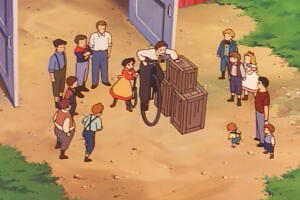
23 notes
·
View notes
Text
RULES: ANSWER 30 QUESTIONS AND TAG 20 BLOGS YOU ARE CONTRACTUALLY OBLIGATED TO GET TO KNOW BETTER.
Tagged By: @ebiemidnightlibrarian thank you so much!
Name: Christina
Star Sign: Pisces
Height: 4′11′’
Time: 6:31 pm
Birthday: March 16th
Favorite Bands/Favorite Solo Artists: Tchaikovsky, Billy Joel, Hozier, Jo Stafford, Blackmore’s Night, Lizzo, just to name a few.
Last Movie: Downton Abbey: A New Era
Last Show: I’m re-watching this show I used to watch when I was a kid called Bear in the Big Blue House.
When did I create this blog: February in 2014
What I post: Anything that I like.
Last thing I googled: Do flies like vinegar?
Other Blogs: @bride-of-the-monster @hislightandherdarkness @joandfriedrich @mygothicromance and @theagegaplover
Do I Get Asks?: Rarely. I get a few here and there @joandfriedrich and even fewer on this one.
Why I chose my url: Well, it was first ladywriter94, after my fanfiction penname, but I changed it after the mess of Rise of Skywalker to reflect my feelings on Ben Solo.
Following: 103
Followers: 726
Average hours of sleep: 4-7
Instruments: None
What am I wearing: Black sleeveless dress.
Dream job(s): Novelist, maybe even director.
Favorite Food: Pizza and chocolate
Nationality: American
Favorite Song(s):
You Belong to Me- Jo Stafford
Uptown Girl- Billy Joel
Hymn of the Cherubim- Tchaikovsky
NFWMB- Hozier
Smooth- Rob Thomas feat Santana
Love is a Battlefield- Pat Benatar
Sway- Rosemary Clooney
Currently playing on repeat:
Something’s Coming from West Side Story 2021
Last book I read: The Godfather by Mario Puzo
Top 3 fictional universes I’d like to live in: Winnie the Pooh, Sleeping Beauty (1959), and Paterson (2016)
tagging: @jonathansreids @dying-suffering-french-stalkers @and-wakes-imagination @haslemere @scuttle-buttle @mynomadicheart @curiouswildi @sparklyprincessjewels @tilliwriteapine @bskarsgardlove92 @witchqueenofthemoon @nat-de-lioncourt @forthegothicheroine @littlewomenchannel @hufflepuffhaven @hephaglaeasworld @swanimagines @tallestsilver @lordjazor @lunethemoon and anyone else who would like to do this!
10 notes
·
View notes
Text
Put your entire music library on shuffle and list the first 10 that come up! Then tag other 10 to do the same
tagged by @this-is-not-what-i-expect
1. Sigh No More - Mumford & Sons
2. It’s Quiet Uptown - Hamilton OBC
3. The Weekly Volcano Press - Little Women OBC
4. Somewhere in Ann Arbor - Anson Seabra
5. Take Me To Church - Hozier
6 . The Crooked Kind - Radical Face
7. Small World - Idina Menzel
8. The Poet - The Arcadian Wild
9. Ophelia - Natalie Merchant
10. My Attic - P!nk
@joandfriedrich @exclusivlylez @pufflehuff02 @wandering-through-lovers-lane @schnoogles @nessa007 @sensicalabsurdities @gayeld @fairychamber @afanbloglikeanothern
#i had a broadway phase#that hasn't ended#there's usually some Beethoven somewhere in there#i've been listening to Tangled the series a lot lately#anyway#music#ive never participated before cuz i always forget
6 notes
·
View notes
Photo
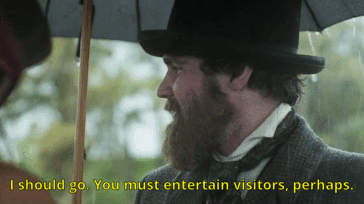
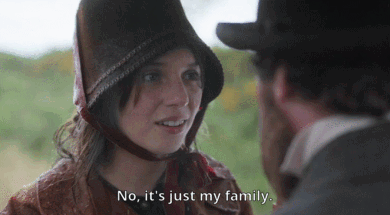
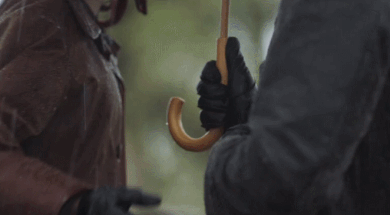
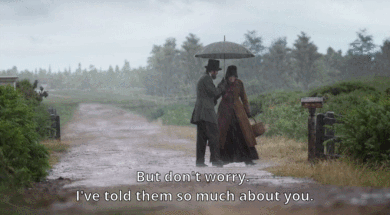
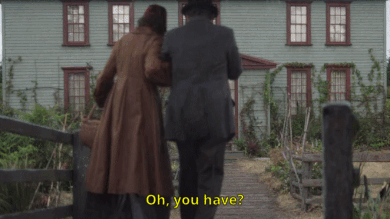
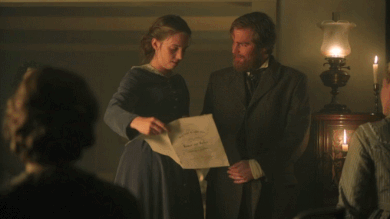
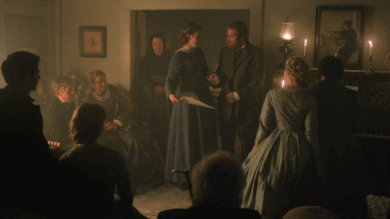
Little Women (2017)
@joandfriedrich
224 notes
·
View notes
Text
Tumblr crushes challenge : where you post your own favorite blogs to spread positivity and get your amazing blogger-friends some more followers !
Tagged by: @crazydaughterofposeidon and @maneth985 *cries rivers of tears of joy*
tagging: (off the top of my head)
@joandfriedrich Content of my first OTP in a beautiful blog. Also, the one to coin the epic “Remadora is Jo/Friedrich with magic”. STANDING OVATION.
@woodelf68 Believe it or not, I see very picture of every gorgeous horse this lady posts and they honor mi dashboard. Also, Thor content with equal amounts of love for both brothers.
@anonymousnerdgirl I have been missing those awesome food posts reblogs... and the landscapes... and the Swanfire stuff... (Get well soon!)
@chirpingtiger intelligent analysis of MCU movies that make me happy.
@clintbartondaily because everything is better with the most underrated avenger ever in my dash.
@thestraggletag a delight. Another colet lover. Enough said.
@sarashouldbestudying my hp main source and lots of “this is me too!” posts.
Rules are simple : if you’re tagged, show off your tumblr crushes and tag your post #mytumblrcrushes. Ofc you don’t have to do it but why pass an opportunity to make someone’s day with this?
4 notes
·
View notes
Text
Little Women: Louisa May Alcott's Love For Germany
youtube
Louisa May Alcott loved Germany and German literature. This is why Jo marries a German man. There was a great deal of discrimination towards Germans in 19th Century America so that Louisa gave Jo a German partner is remarkable. Louisa traveled to Germany. She visited Frankfurt in Goethe's house. Goethe was her favorite writer and one of the models for Friedrich's character. Louisa also visited Berlin. Is it a coincidence that Friedrich was a professor at the University of Berlin? In this episode, you will learn about the several mentions of Germany and Germans in Little Women.
#littlewomen#little women#littlewomenpodcast#jomarch#friedrichbhaer#joandfriedrich#amymarch#laurielawrence#amyandlaurie#megmarch#bethmarch#louisamayalcott#book#Youtube
14 notes
·
View notes
Text
Little Women: What Makes Jo March Tick
youtube
Emily and I combined our powers once again to discuss Jo's and Friedrich's relationships and Louisa May Alcott's attraction toward intelligence. When Friedrich gives feedback to Jo, Jo appreciates it, because she wants to develop as a writer. Friedrich is based on men who Louisa was in love with like Henry David Thoreau, but also her favorite authors such as the German poet Goethe.
#littlewomen#little women#littlewomenpodcast#jomarch#friedrichbhaer#joandfriedrich#amymarch#laurielawrence#amyandlaurie#megmarch#bethmarch#louisamayalcott#book#Youtube
8 notes
·
View notes
Text
Little Women Podcast: Why Friedrich Is Poor
youtube
A deep dive into Louisa May Alcott´s views on wealth and the transcendentalist thoughts on money. Self-reliance is such an important aspect of Jo´s and Friedrich´s relationship. Jo admires him and his work morals and Friedrich admires Jo for the same reason. In the novel, Amy wants to marry a rich to save her family (not because she is afraid to work. Neither Jo or Amy can respect Laurie when he is being lazy and unproductive. In Louisa May Alcott's novels, the rich people are usually the unhappiest.
#littlewomen#little women#littlewomenpodcast#jomarch#friedrichbhaer#joandfriedrich#amymarch#laurielawrence#amyandlaurie#megmarch#bethmarch#louisamayalcott#book#Youtube
11 notes
·
View notes
Text
Little Women Podcast: The Real-Life Friedrich Bhaer
youtube
There was a real-life Friedrich Bhaer. In fact, Louisa May Alcott wanted to marry him and even start a school with him. This man appears in literal disguises in all of her novels. He is Friedrich in Little Women, Mac in Rose in Bloom and David in Work, and many more. Henry and Louisa shared a deep friendship, was it more than friendship? In Little Women Jo's and Friedrich's age gap is 16 years. It is the same age difference as between Henry and Louisa.
#littlewomen#little women#littlewomenpodcast#jomarch#friedrichbhaer#joandfriedrich#amymarch#laurielawrence#amyandlaurie#megmarch#bethmarch#louisamayalcott#book#Youtube
7 notes
·
View notes
Text
Louisa May Alcott Wanted To Get Married

Margaret Fuller was an American journalist, editor, and woman's rights activist. Fuller's Writings on Love and Marriage had a huge impact on Louisa. Her book "Dial" expresses her almost gender-neutral understanding between men and women. Fuller´s writings are considered the first American feminist writings at a time when feminism as a concept and as a social movement did not exist yet.
youtube
Louisa knew Margaret and greatly admired her and was deeply affected by her radical ideas. "
Male and female represent the two sides of the great radical dualism, but in fact, they are partially passing into one another. Fluid hardens to solid, and solid rushes to fluid. There is no fully masculine man nor fully feminine woman"
Following the transcendental idea of duality Fuller, sees a man, including both sexes, those being the two sides of the same. Fuller underlines the fact that we cannot separate the well-being of either, but what is good for one sex is good for both. Equality between the sexes is beneficial for everyone.
These ideas were revolutionary. Jo is often portrayed as a feminist icon, and this has been only highlighted by the movies, but in the book, Jo does fall into misogynist behaviour more than once, especially in her younger years. There's a lot of talk about toxic masculinity. In her friendship with Laurie, both Jo and Laurie adapted behaviour patterns that we might nowadays refer to as sexist.
They fed each other with misogynist ideas. They made one of the feminine girls, Laurie was flirting with in college. Jo mocked both Amy and Meg, for wanting to fit into the female circles. When Jo lost her trip to Europe, it happened because she made fun of the feminine labour. When Laurie proposed to Jo, he took a position that was demanding. In comparison to Jo, who is very blunt, Laurie was very emotional and became easily offended. For Jo, showing emotions was a weakness. This is something that Laurie even called her out in the book, In the 2017 series, after Marmee goes to Washington, Jo tells her sisters not to cry. In her relationship with Friedrich, for the first time, Jo allowed herself to be completely vulnerable with another person.
#littlewomen#littlewomenpodcast#louisamayalcott#jomarch#friedrichbhaer#laurielawrence#amymarch#joandfriedrich#Youtube
3 notes
·
View notes
Text
Louisa May Alcott Wanted To Get Married
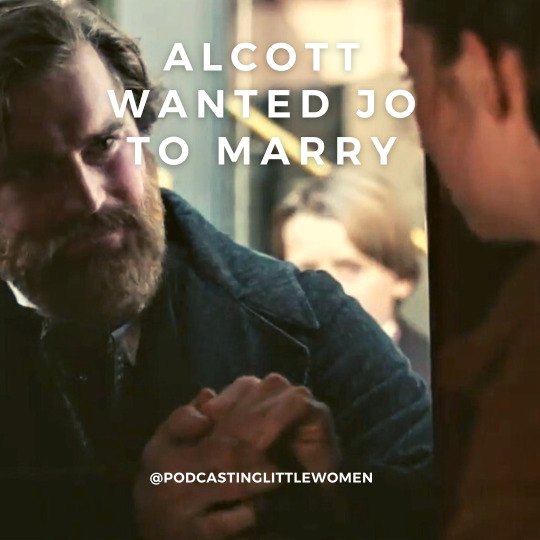
In Little Women, there are characters with certain real-life counterparts. For example, Marmee was based on Abba Alcott and Meg on Anna Alcott, but Friedrich and Laurie are mixed characters that are based on several people in Louisa´s life. Laurie had several real-life counterparts. Louisa´s good friend Al Whitman, who she acted with within the Concord Theatrical Society. Alf was a good friend of Louisa´s sister May as well. Next-door neighbour, Julian Hawthorn is also considered to be one of the real-life Laurie and he had a teenage crush on May. Ladislas "Laddie" Wisniewski was a 22-year-old composer who Louisa met in Poland when she was working as a companion to an invalid woman called Anna Weld.
Listen full Podcast episode
youtube
Ladislas has been described to be a flirtatious prankster, and he referred to Louisa as his "little mama". Ladislas had tuberculosis and Louisa nursed him. It would seem that there was something romantic going on between them and then there was a conflict, for Louisa´s diary markings are violently scratched. Some Alcott scholars have speculated that Ladislas was flirting with Miss Weld.
There's very little known about Ladislas. He did beat tuberculosis and we know that he end up marrying and having two children. What is noticeable is that all the real-life Lauries were much younger than Louisa, even though in the book Laurie, is a few months older than Jo, for Jo, always remains a boy, even as an adult. Laurie refers to himself as the first boy Jo ever raised.
Follow and Share <3
#littlewomen#littlewomenpodcast#louisamayalcott#jomarch#friedrichbhaer#laurielawrence#amymarch#joandfriedrich#Youtube
2 notes
·
View notes
Text
youtube
Niina: I read another Louisa May Alcott novel ”Work, the story of experience” there is a scene where David, who is once again based on Henry David Thoreau when confesses his feelings for Christine, who is the protagonist, he almost has this similar blurt, that Friedrich has in the umbrella chapter, that he has been holding all these feelings inside and then he lets it all out there when he confesses his love for her and I think it´s something that Louisa kinda recycles in her stories. There is something similar in Rose in Bloom when Mac confesses his feelings for Rose. When I read about Henry he is quite similar to Friedrich in that sense that he would take his time to think things through before he would express his opinion or, something that he really wanted to say. There are lots of descriptions about him that he was sort of more of a deep thinker and yet in some ways a very passionate person. Yeah, I think some of that must have come from Louisa´s own experiences. Why else would she write about it in her novels? we have been talking for about two hours and 40 minutes.
Christina: Oh my goodness
Niina: Well…thank you Christina for joining me. This was lots of fun.
Christina: Yes and thank you for inviting me. I have never been a part of a podcast before so this is very exciting for me and I hope that the listeners get a chance to enjoy this as much as I did.
Niina: We can find you on Tumblr from the JoandFridrich blog. It´s a great blog people. Go on and read it.
Christina: Thanks I´ll try my best.
#littlewomen#littlewomenpodcast#jomarch#friedrichbhaer#joandfriedrich#amymarch#laurielawrence#amyxlaurie#megmarch#johnbrooke#megandjohn#Youtube
6 notes
·
View notes
Text
Louisa May Alcott Wanted To Get Married

After Beth's passing, the novel that Jo writes is not Little Women and neither is it a thrilling story. It is a story about Beth, a book about home. She took Friedrich´s advice to write something from her heart, and it becomes Jo's first big hit. When Amy marries Laurie, Jo is genuinely happy for them in the book, but she does envy her happiness. She does not envy Amy for marrying Laurie. She envies their happiness. The book Jo misses Friedrich a great deal. The loneliness she was afraid of does happen because it is inevitable. When Jo falls in love, She embraces all the emotions, including the romantic ones, which are the ones she has been afraid of because of her fear of commitment.
Listen full Podcast episode
youtube
According to Jo's early experience, love and marriage destroyed families. Fear of not being accepted as she is outside of her family affects Jo´s fear of being alone. Friedrich does not want Jo to change, and once Jo realizes this, she lets go of her fear. Friedrich has an empathic worldview, which is often seen as a more feminine trait.
He's also kind and soft-spoken. For some people, this makes Friedrich emancipated, which is more indicative of someone being tied up in their own binary views of gender than anything else. It is the same way as condemning Amy because of her femininity. Some people, usually younger ones, admire Laurie when he tries to blackmail Jo to marry him.
It is a complete juxtaposition that shies away from Louisa May Alcott´s very intentional attempt to tear down gender stereotypes, those feelings of being an outsider and her struggles with non-conformity come at ease when she meets Friedrich, who embraces those feminine traits that she admires in a man.
Follow and Share <3
#littlewomen#littlewomenpodcast#louisamayalcott#jomarch#friedrichbhaer#laurielawrence#amymarch#joandfriedrich#Youtube
2 notes
·
View notes